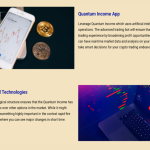As the world grapples with increasingly severe environmental and humanitarian challenges, the demand for skilled leaders capable of addressing these crises has never been greater. From natural disasters and climate change to global health emergencies and refugee crises, the scope of these issues requires individuals who are well-versed in managing complexity, responding effectively, and promoting sustainable solutions.
This article explores how education, critical thinking, adaptability, and collaboration can shape future leaders prepared to make a difference. With the right skills and knowledge, individuals can contribute to creating a more sustainable and equitable future.
1. Understanding the Importance of Specialized Education
Specialized education is a cornerstone for preparing leaders to address environmental and humanitarian challenges. These programs offer a structured way to learn about complex issues like disaster preparedness, climate mitigation, and community resilience. They also provide tools to address crises in an informed and strategic manner.
Programs such as a disaster management degree are particularly valuable. These degrees focus on key areas like risk assessment, crisis response, and recovery planning. Students gain practical knowledge through case studies, simulations, and internships, which prepare them to handle real-world emergencies. The curriculum often integrates multidisciplinary perspectives, combining public health, environmental science, and social policy to equip students with a comprehensive understanding of global crises.
Investing in such specialized education lays a solid foundation for individuals aiming to lead in fields like humanitarian aid, sustainability, and emergency response.
2. Developing Critical Thinking and Problem-Solving Skills
Critical thinking and problem-solving are essential for navigating the complexities of environmental and humanitarian crises. Leaders must analyze problems, evaluate potential solutions, and implement strategies that address immediate needs while considering long-term implications.
Educational programs foster these skills through hands-on activities such as simulations and scenario planning. For instance, students might analyze the response to a natural disaster, identifying gaps in relief efforts and proposing improvements. This kind of experiential learning trains them to think quickly and effectively under pressure.
Real-world crises often involve limited resources and unpredictable developments. Leaders with strong problem-solving abilities can adapt to changing circumstances, ensuring that their decisions remain effective even in the most challenging situations.
3. Emphasizing Collaboration and Teamwork
No single individual or organization can tackle environmental or humanitarian crises alone. Effective collaboration among diverse stakeholders is critical for success. This requires leaders who can work seamlessly within multidisciplinary teams, uniting individuals from different sectors, cultures, and areas of expertise.
Educational programs emphasize teamwork by including group projects, cross-disciplinary courses, and collaborative fieldwork. These experiences teach students to communicate effectively, resolve conflicts, and leverage the strengths of team members to achieve shared goals.
Real-world examples highlight the importance of collaboration. For instance, disaster response often involves governments, NGOs, and local communities working together. A skilled leader knows how to coordinate efforts, ensure efficient resource distribution, and foster a spirit of cooperation among all parties involved.
4. Fostering Adaptability in Dynamic Environments
Environmental and humanitarian crises are rarely predictable. Leaders in these fields must be prepared to adapt their strategies as new challenges arise. Adaptability is a critical skill for effective leadership, whether it’s a sudden shift in weather patterns or an unexpected health crisis.
Environmental studies programs often include training in resilience and flexibility. For example, students might participate in role-playing exercises where they must respond to an evolving crisis, such as a hurricane followed by flooding. These activities teach them to think on their feet and adjust plans without losing sight of their objectives.
Adaptability also involves staying informed about the latest developments in technology, policies, and best practices. Leaders who embrace change are better equipped to lead their teams and communities through uncertain times.
5. Integrating Technology for Crisis Management
Technology plays a pivotal role in managing environmental and humanitarian crises. Tools like Geographic Information Systems (GIS), data analytics, and early warning systems enable leaders to predict and respond to disasters more effectively. For instance, GIS can help map areas at risk during a hurricane, while data analytics can provide insights into resource allocation during a humanitarian crisis.
Education programs emphasize the integration of technology into crisis management strategies. By familiarizing students with tools like mobile apps for disaster reporting or drones for assessing damage, future leaders can enhance their ability to act swiftly and make informed decisions. Staying updated with technological advancements is crucial for maintaining efficiency in an ever-evolving field.
6. Promoting Ethical Leadership and Social Responsibility
Ethical leadership is at the heart of effective crisis management. Leaders must prioritize fairness, inclusivity, and sustainability while addressing challenges. For example, when allocating resources during a humanitarian crisis, it’s essential to consider the needs of vulnerable populations and avoid favoritism or discrimination.
Education programs instill these values by incorporating case studies that emphasize ethics and social responsibility. Students learn the importance of transparency, cultural sensitivity, and long-term planning. Ethical leadership fosters trust among stakeholders, enabling more effective collaboration and lasting impact.
7. Building Global Awareness and Cultural Competence
Environmental and humanitarian crises often transcend borders, affecting diverse populations. Leaders must understand the global nature of these challenges and develop cultural competence to navigate different contexts effectively. For instance, managing a refugee crisis requires knowledge of international policies and an understanding of the cultural norms of affected communities.
Programs prepare students for global leadership by offering opportunities to engage with international organizations, study global case studies, and participate in cultural exchange programs. This exposure helps leaders develop a broader perspective and equips them to address crises in diverse settings.
8. Encouraging Community Engagement and Grassroots Involvement
Effective leaders understand the value of engaging with local communities during environmental and humanitarian crises. Grassroots involvement ensures that solutions are tailored to the specific needs of the people affected, fostering trust and collaboration.
Educational programs emphasize the importance of community engagement by encouraging students to participate in fieldwork and local projects. These experiences provide insights into the challenges faced by communities and teach future leaders how to empower individuals to take an active role in addressing crises.
In conclusion, preparing future leaders to tackle environmental and humanitarian crises requires a comprehensive approach that combines education, skill-building, and ethical awareness. Online programs provide the foundation for developing critical thinking, adaptability, and collaboration skills. With the right preparation, they can drive meaningful change, ensuring a more sustainable and equitable future for communities worldwide.
Lynn Martelli is an editor at Readability. She received her MFA in Creative Writing from Antioch University and has worked as an editor for over 10 years. Lynn has edited a wide variety of books, including fiction, non-fiction, memoirs, and more. In her free time, Lynn enjoys reading, writing, and spending time with her family and friends.















